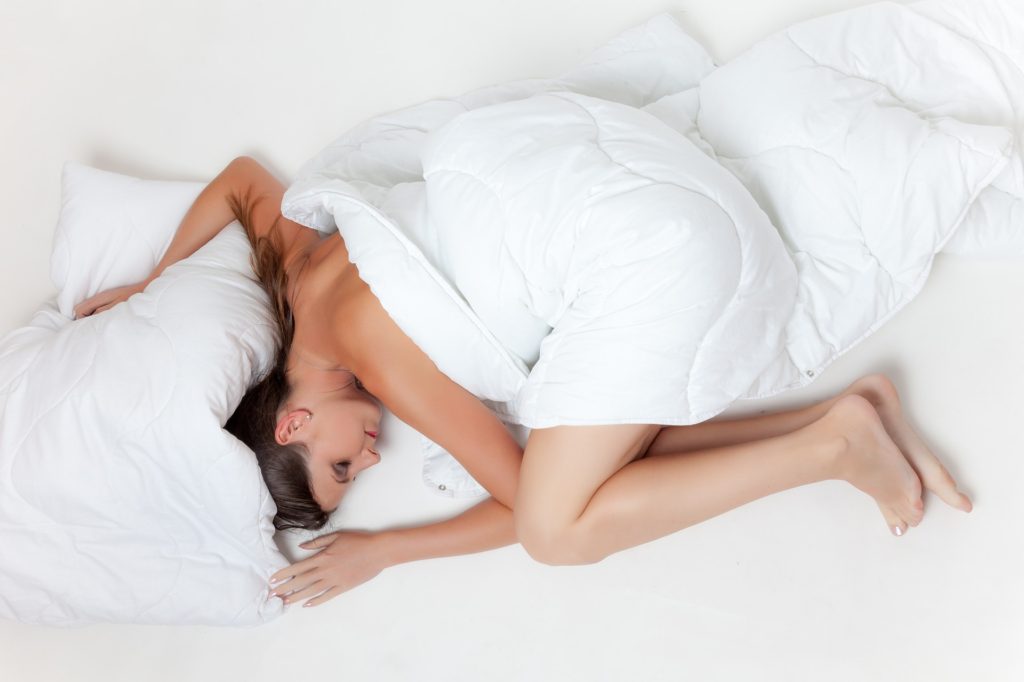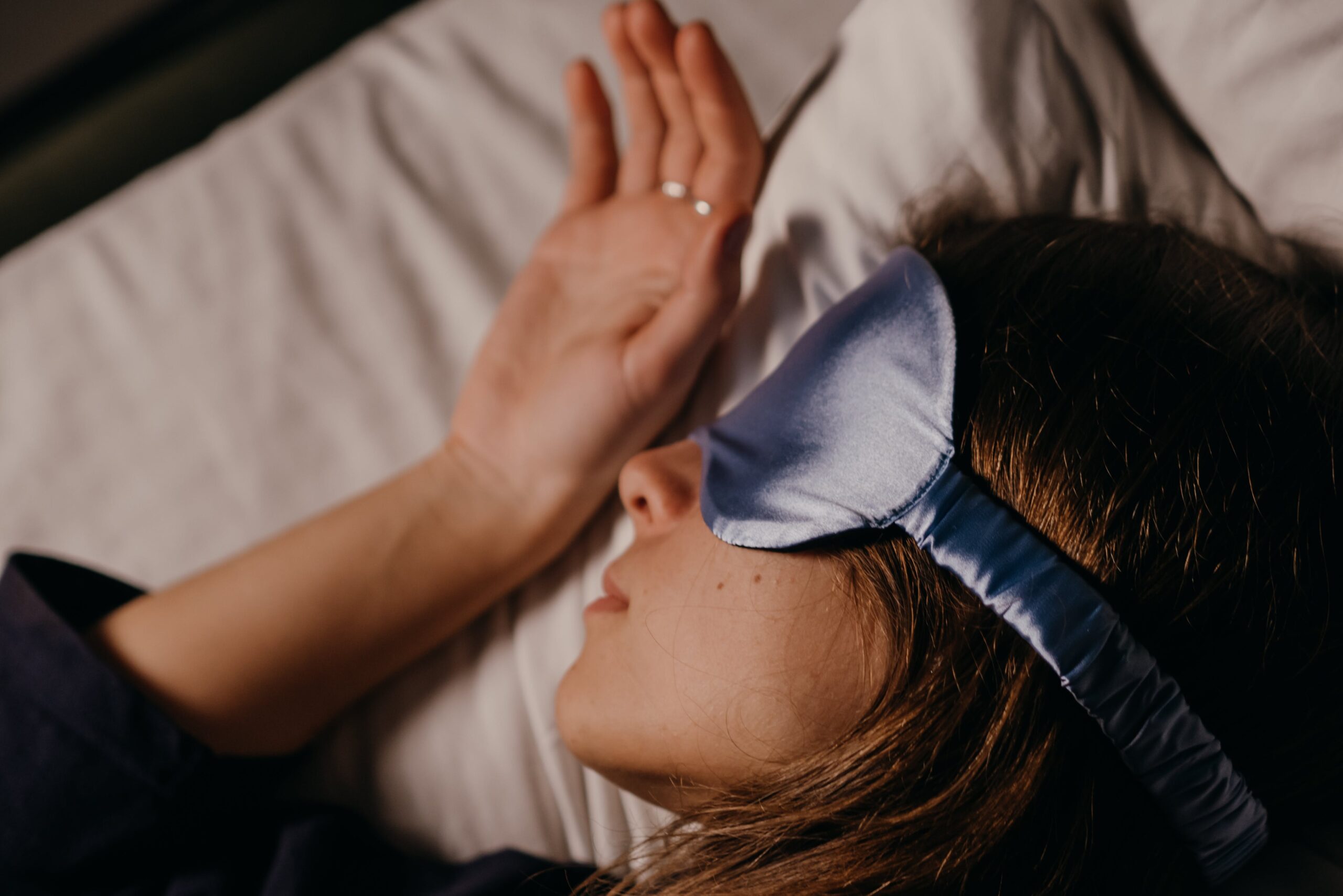Bipolar Disorder, characterized by extreme mood swings, affects many women. In this post, we’ll explore the importance of bipolar disorder sleep hygiene for women in managing mood swings and promoting overall well-being. Managing bipolar disorder effectively often starts with establishing healthy sleep habits.
Bipolar Disorder is a complex mental health condition characterized by extreme mood swings and fluctuations in energy levels. Managing bipolar disorder effectively is crucial for individuals to lead fulfilling lives.
One often overlooked aspect of bipolar disorder management however is sleep hygiene and yet it is one of the most important keys to effective management of this disorder. It is crusial to explore the significance of sleep hygiene in bipolar disorder management and create practical strategies for establishing healthy sleep habits.
By prioritizing sleep hygiene, individuals with bipolar disorder can experience improved mood stability, enhanced overall functioning and a far better quality of life.
Understanding Bipolar Disorder
In this post, we’ll explore the concept of sleep hygiene, its importance and practical tips for better sleep when dealing with bipolar disorder.
Bipolar Disorder involves alternating episodes of mania (elevated mood, excessive energy) and depression (low mood, lack of motivation). Interestingly, research has shown a strong link between bipolar disorder and sleep disorders making it crucial to prioritize Bipolar Disorder sleep hygiene.
Here’s a study from the NIH you can look into: Sleep Disturbance in Bipolar Disorder Across the Lifespan
Irregular sleep patterns and disturbances can trigger mood episodes and exacerbate symptoms. Sleep deprivation or disruptions can lead to increased irritability, decreased cognitive function and difficulty in emotional regulation. Therefore, it becomes crucial to address sleep hygiene as a fundamental component of bipolar disorder management.
So What is Sleep Hygiene
Quite simply, sleep hygiene refers to a set of practices and habits that promote healthy sleep. Establishing a regular sleep schedule is paramount for individuals with bipolar disorder. Going to bed and waking up at consistent times help regulate the body’s internal clock and promotes better sleep quality.
Learning to retire from your day and engaging your practices and habits, healthy sleep hygiens, is the key to effective bipolar disorder management.
Benefits of Improving Sleep Hygiene in Bipolar Disorder
By prioritizing sleep hygiene for bipolar disorder, that means seriously making it one of the most important parts of your day, individuals with bipolar disorder can experience numerous benefits. Stabilizing mood swings and reducing the frequency and intensity of mood episodes are key advantages. With improved sleep quality, individuals often report enhanced overall functioning, including better concentration, memory and decision-making abilities.
Adhering to proper sleep hygiene can also improve medication effectiveness and treatment outcomes. Additionally, better sleep hygiene promotes optimal cognitive functioning and emotional regulation, leading to improved overall well-being.
Implementing effective sleep hygiene requires a proactive approach. Educating oneself about the importance of sleep hygiene in bipolar disorder is crucial.
Here are a few studies on Sleep Hygiene and Bipolar Disorder you could start with:
Tips for Better Sleep:
Maintaining good sleep hygiene can help individuals with bipolar disorder stabilize their mood and reduce the risk of manic or depressive episodes. Here are some tips to consider:
Consistent Sleep Schedule:
- Go to bed and wake up at the same times each day, even on weekends.
- Consistency helps regulate your body’s internal clock. Bipolar disorder is often associated with disruptions in the circadian rhythm, the internal biological clock that regulates sleep-wake cycles and other physiological processes.
2. Create a Comfortable Sleep Environment:
- Ensure your bedroom is dark, quiet and at a comfortable temperature.
- Invest in a good-quality mattress and pillows.
3. Limit Screen Time Before Bed:
- Avoid screens (phones, tablets, computers) for at least an hour before bedtime.
- The blue light from screens can disrupt your sleep-wake cycle.
4. Manage Stress:
- Practice relaxation techniques like deep breathing or meditation to manage stress.
- High stress levels can interfere with sleep.
5. Be Mindful of Your Diet:
- Avoid heavy meals, caffeine and alcohol close to bedtime.

Read Our Affiliate Disclaimer Here
Improve Sleep Quality with a Weighted Blanket: Sleep disturbances are common among individuals with bipolar disorder, and disrupted sleep patterns can exacerbate mood symptoms. Weighted blankets have been found to promote better sleep quality by increasing serotonin and melatonin production and reducing cortisol levels. The gentle pressure of the blanket can help regulate the sleep-wake cycle, enhance relaxation and lead to more restful sleep, which is crucial for managing your bipolar symptoms. There are plenty to choose from on Amazon and this is my favorite.
Additional Considerations for Sleep Management
In some cases, individuals with bipolar disorder may also experience co-occurring sleep disorders, such as insomnia or sleep apnea. It is essential to address these conditions alongside managing bipolar disorder. Medications used in bipolar disorder treatment may also impact sleep and it is important to discuss any concerns or side effects with your healthcare provider. Open communication with healthcare providers regarding sleep issues ensures comprehensive care and effective management of bipolar disorder. Support systems and resources, such as support groups or therapy, can provide additional assistance and guidance throughout the journey of managing bipolar disorder and sleep hygiene.
Making Sleep a Priority is Just Good Management
Prioritizing Bipolar Disorder Sleep Hygiene is an essential aspect of managing bipolar disorder effectively. By following the principles of sleep hygiene, individuals with bipolar disorder can significantly improve their overall well-being and quality of life. Incorporating healthy sleep habits, such as maintaining a regular sleep schedule, creating a conducive sleep environment and practicing relaxation techniques, can have a profound impact on mood stability, cognitive function and emotional regulation.
Remember, implementing effective sleep hygiene requires consistency and commitment. It may take time to establish new habits, but the long-term benefits are worth the effort. By prioritizing sleep hygiene, individuals with bipolar disorder can take an active, leading role in managing their condition and promoting better overall health.
Prioritizing sleep hygiene is a valuable step towards achieving a more balanced and fulfilling life with bipolar disorder.
What's So Important About Sleep
Here’s some of the boring, but necessary ‘sciencey’ stuff’ I always like to provide. Remember, wisdom is power and we want all the power we can get! And it’s intesting too.
Sleep is a vital process that naturally allows our body and brain to rest, repair and regenerate. And it’s going to happen whether we like it or not, so doing it well is paramount, as doing it bady just adds to the discomfort and exacerbation of the condition. So we might as well let nature take it’s course and reap the harvest; better overall health.
While we sleep, several physiological and neurological changes occur, facilitating various essential functions. Let’s delve into what actually happens to the body and brain during sleep:
- Sleep Stages: Sleep is divided into several stages that cycle throughout the night. These stages include non-rapid eye movement (NREM) sleep, which is further divided into three stages (N1, N2, and N3), and rapid eye movement (REM) sleep.
NREM Sleep: During NREM sleep, the body undergoes physical restoration and rejuvenation. N1 is the transition stage between wakefulness and sleep, N2 is a light sleep stage, and N3 is deep sleep. In these stages, the body’s temperature drops, muscles relax, and heart rate and blood pressure decrease. Tissue repair, growth, and immune system strengthening also occur during this time.
REM Sleep: REM sleep is characterized by rapid eye movements and increased brain activity. This stage is associated with dreaming, emotional processing, and memory consolidation. Despite the heightened brain activity, the body experiences muscle paralysis, which prevents us from acting out dreams and protects us from physical harm during sleep.
- Hormonal Regulation: Sleep plays a vital role in hormonal regulation. During sleep, the body releases growth hormone, which is essential for tissue repair and growth. Additionally, sleep helps regulate the production of hormones like cortisol (stress hormone), insulin (blood sugar control), and leptin and ghrelin (appetite regulation). Disruptions in sleep can negatively affect hormone balance and lead to various health issues.
- Brain Restoration and Consolidation: Sleep is crucial for brain health and cognitive function. During sleep, the brain undergoes processes that enhance learning, memory consolidation, and problem-solving abilities. Sleep allows the brain to process and integrate information gathered throughout the day, strengthening neural connections and improving overall cognitive performance.
- Glymphatic System Activation: The glymphatic system, a waste clearance system in the brain, becomes more active during sleep. It helps remove harmful waste products, such as beta-amyloid, a protein associated with Alzheimer’s disease. Proper sleep allows for efficient waste removal and supports brain health and cognitive function.
- Energy Conservation: While we sleep, the body’s energy consumption decreases compared to wakefulness. This energy conservation allows for replenishment and restoration of cellular energy stores, promoting overall physical and mental well-being.
- Immune System Support: Sleep plays a vital role in supporting the immune system. During sleep, the body produces and releases immune cells and proteins that help fight infections and promote healing. Inadequate sleep can weaken the immune system, making individuals more susceptible to illnesses and infections.
The important thing to know is that sleep is a complex process that involves various physiological and neurological changes. It provides an opportunity for the body and brain to rest, repair and regenerate. By understanding what happens to your body and brain during sleep, we can appreciate the essential role that sleep plays in maintaining optimal health and well-being. Prioritizing quality sleep is crucial for overall physical and cognitive functioning and one of the most important for those living with bipolar disorder.
Finding Your Dream Spot
Finding your ideal sleep duration, your dream spot, can be a highly individualized journey. While 7 to 9 hours of sleep is the general guideline, the perfect number of hours can vary from person to person. To find your dream hours of sleep, pay attention to how you feel during different sleep durations.
Start with 7 hours, for example, and evaluate if you wake up feeling refreshed and alert. If not, try adjusting your sleep duration by 15-30 minutes. Experiment with different sleep durations until you discover the one that leaves you feeling your best.
Once you’ve found your ideal sleep duration, your dream spot, aim to stick with it consistently. A regular sleep schedule can help regulate your body’s internal clock, allow the physiological and neurological process to occure naturally and improve the overall quality of your sleep, promoting better mental and physical well-being.

Sleep Journal
Keeping a sleep journal can be a valuable tool for understanding your sleep patterns and identifying areas for improvement. To start a sleep journal, keep a notebook or use a sleep tracking app. There are plenty to chose from on Amazom – specifically designed for this purpose.
Each night before bed, record important details about your sleep hygiene. Begin by noting the time you go to bed and the time you wake up. Be sure to include any disturbances or awakenings throughout the night, as well as the duration of each disruption.
Additionally, document how you feel upon waking up, including factors like fatigue, mood and energy levels. It’s also helpful to track lifestyle factors that may impact sleep, such as caffeine or alcohol consumption, exercise and stress levels.
Over time, analyzing your sleep journal will provide insights into patterns and trends that can help you make adjustments to your sleep routine and environment. With consistent use, a sleep journal or app becomes a powerful tool for optimizing your sleep hygiene and enhancing your overall sleep quality.
YOU MIGHT BE INTEREST IN
Empower your mental health journey with our guide, ‘Sleep Hygiene for Bipolar Disorder.’ Discover natural solutions, actionable tips and evidence-based strategies tailored for women seeking to stabilize mood swings and enhance overall well-being. This comprehensive resource embraces holistic approaches to foster better sleep quality and empower you on your path to a fulfilling life.
Disclaimer: The information or products mentioned in this article are provided as information resources only and are not to be used or relied on to diagnose, treat, cure or prevent any disease. The statements made in this article have not been evaluated by the Food and Drug Administration. Any products mentioned are not intended to diagnose, treat, cure, or prevent any disease. The information in this article is intended for educational purposes only. The information is not intended to replace medical advice offered by licensed medical physicians. Please consult your doctor or health practitioner for any medical advice.
and don't forget to sign up for our weekly newsletter. it's free!

52 Weeks, 52 Topics! Get Our Latest ‘Stay Well’ Newsletter Every Monday And Start Your Week Off AllNaturWell. A New Tip, A New Study Revealed, A New Product Reviewed. Get It Right To Your Inbox Weekly. No Need To Wait. It’s Free!





